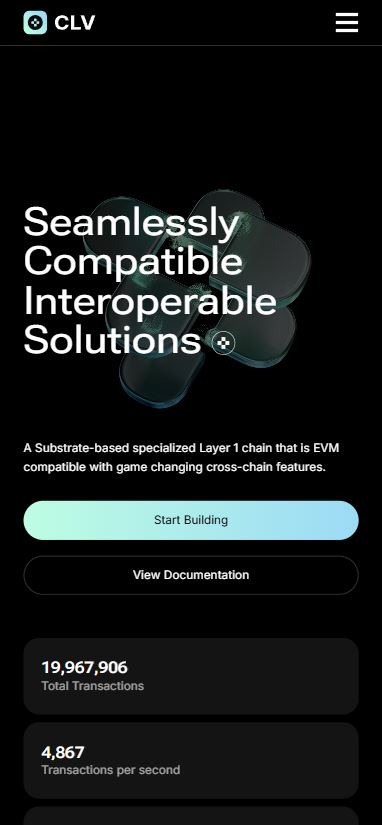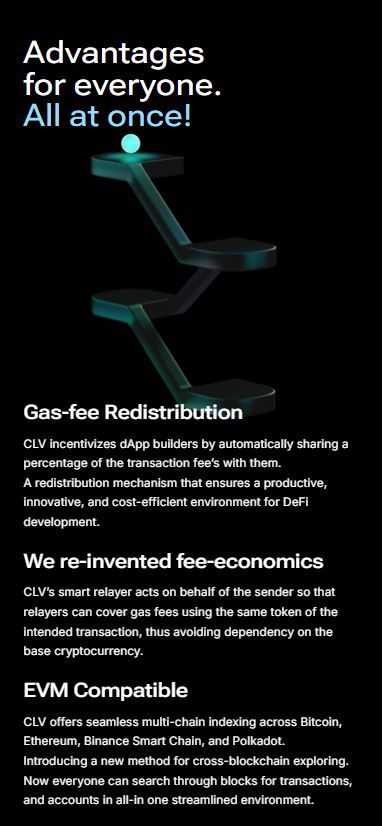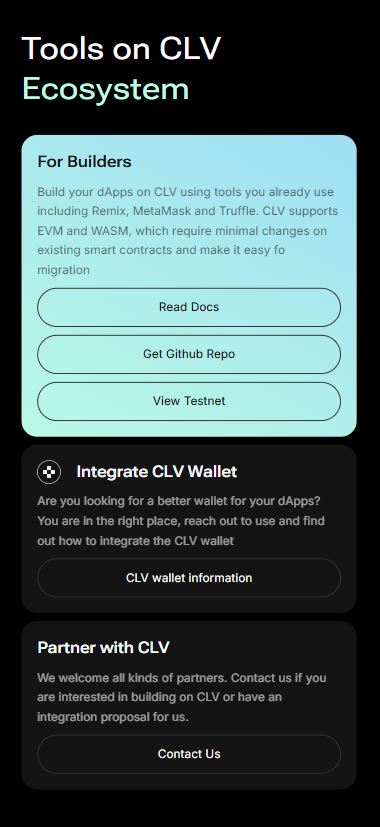About Clover Finance (CLV)
Clover Finance (CLV) is a blockchain infrastructure platform that focuses on providing cross-chain compatibility for decentralized finance (DeFi) applications. Its mission is to enable interoperability between blockchains, allowing developers to build decentralized applications (DApps) that can operate seamlessly across different networks. CLV, which is the native token of the platform, plays a key role in governance and transaction processes within the ecosystem.
What is CLV?
Clover Finance, now referred to as CLV, operates as a blockchain operating system designed to bridge the compatibility gap between different blockchains. Its infrastructure facilitates the creation and operation of Substrate-based applications and provides a cross-chain DeFi bridge. The platform is built to enable users, including beginners, to engage in the world of decentralized finance. Through its multi-layered structure, CLV offers a robust foundation for developers to create DeFi applications and DApps that can function across multiple blockchain networks.
How Does CLV Work?
CLV utilizes a multi-layered architecture, consisting of:
- Storage Layer
- Smart Contract Layer
- DeFi Protocol Layer
- eApp Layer
This structure enables seamless cross-chain interactions and decentralized finance activities. One key feature is the ability for relayers to act on behalf of senders in transactions, covering gas fees in the base currency and receiving compensation in the denominated asset. CLV also uses an identity-based gas fee schedule, which adjusts transaction fees based on network activity and usage.
The CLV token serves two main purposes: it is used for governance (allowing users to vote on system upgrades) and for staking within the proof-of-stake (PoS) consensus to validate network transactions. CLV also plays an essential role in nominating node validators, which ensures the integrity and security of the Clover network.
Potential Use Cases for CLV
CLV aims to be a comprehensive infrastructure platform for cross-chain and decentralized applications. Some of the key use cases for CLV include:
- Cross-Chain Wallets: CLV provides a cross-chain wallet solution for users to manage their assets across various blockchain networks.
- DeFi and Metaverse Integration: With its support for DeFi protocols and the Metaverse, CLV serves as a bridge for users and developers to access decentralized financial products and virtual worlds.
- Gaming and eApps: CLV also targets the gaming sector and the growing demand for decentralized apps (eApps) with universal cross-chain support.
- Seamless Deployment for Developers: Developers can deploy eApps on the CLV network without the need to rely on other virtual machines or consume excessive network bandwidth.
- Staking and Governance: Users can stake their CLV tokens to participate in governance and validate transactions, contributing to the security and decentralization of the Clover network.
History of CLV
CLV’s development began in May 2020, in response to the increasing need for blockchain interoperability. After months of building its platform, Clover Finance was recognized as part of a seed program in Winter 2021. In April 2021, it held its initial token offering (ITO), and by July 2021, the mainnet for Clover Finance was launched.
The project was co-founded by Viven Kirby, Norelle Ng, and Burak Keçeli, who brought a diverse set of expertise in enterprise resource planning, blockchain technology, and computer programming. In line with the project’s future direction, Clover Finance rebranded to CLV, with a strong emphasis on the emerging Web3 ecosystem.
CLV is positioning itself as a foundational blockchain infrastructure platform that enables seamless interoperability across different blockchains. With its focus on DeFi, cross-chain compatibility, and decentralized applications, CLV is carving out a significant role in the evolving world of Web3 and blockchain infrastructure. As the demand for cross-chain solutions continues to grow, CLV is well-positioned to become a key player in the space.
























Harran –
DeFi protocols